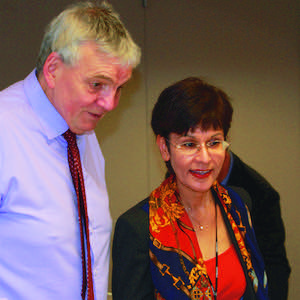 Two legal academics, Dr Bob Moles and Associate Professor Bibi Sangha, have critically examined the Sue Neill-Fraser conviction in Tasmania in 2010, producing a detailed analysis of factual, interpretational and inferential errors involving witnesses, the prosecution and decisions of the judge. They conclude that Neill-Fraser, now in what they believe is her 10th year of wrongful imprisonment, should be released immediately…as occurred in Victoria when a major error was identified in a trial. Victoria was able to acquit an innocent man who had been wrongfully committed one working day after error was acknowledged by the prosecution. So should it be in Tasmania, they say.
Two legal academics, Dr Bob Moles and Associate Professor Bibi Sangha, have critically examined the Sue Neill-Fraser conviction in Tasmania in 2010, producing a detailed analysis of factual, interpretational and inferential errors involving witnesses, the prosecution and decisions of the judge. They conclude that Neill-Fraser, now in what they believe is her 10th year of wrongful imprisonment, should be released immediately…as occurred in Victoria when a major error was identified in a trial. Victoria was able to acquit an innocent man who had been wrongfully committed one working day after error was acknowledged by the prosecution. So should it be in Tasmania, they say.
Note: Bob Moles Home page on the Sue Neill-Fraser case is here: http://netk.net.au/EtterHome.asp




